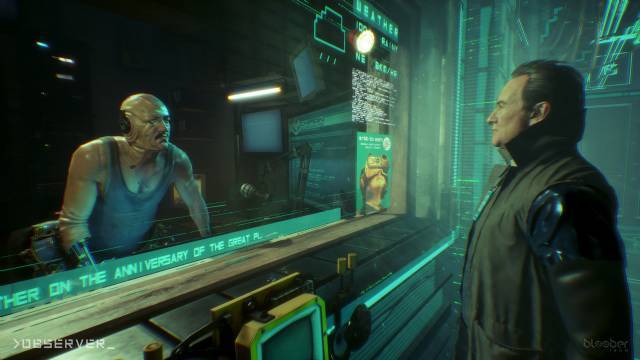Mind Ruler
We are in 2084.
Like most Eastern European countries, Poland has also been devastated by the great war that has decimated the population and Nanofagia, a digital epidemic that almost killed all those with cybernetic grafts.
The few survivors, even to escape the impeccable new reality, live drug slaves, virtual reality, and neural implants; are locked in the squalid suburban cabins of the cities and communicate with the outside only through a video door phone. Isolated, suspicious, frightened, and captive, since promises of a futuristic world have crushed against the wall of social oppression and false hopes, they have also become victims of an ever-growing gap between rich and poor.
Krakow is kneeling, lost, unrecoverable, and control is totally in the hands of a mega corporation called Chiron. The company has formed a police unit whose purpose is to hack and invade the minds of potential criminals and victims so as to live in person the thoughts, memories, dreams and fears of others.
In the role of Daniel Lazarski, played by legendary Rutger Hauer, you have to infiltrate one of these poor neighborhoods and flush the apartments looking for your son who has not been feeling for a long time but for some reason, one evening, sends you a strange message which seems to come from exactly that area.
It will only be the beginning of a series of unpredictable, surreal, disturbing, and bloody gaming situations for a ‘ In fact, the Observer has its best combination in this success and finds a nearly perfect circle quadrature between setting, environmental narration and atmosphere.
The distrophic world created by Bloober Team has apparent literary inspirations such as Aldous Huxley’s New World , some sci-fi works, and includes part of Orwellian vision; and there are also references to several films that have dealt with Observer’s main themes . However, the project is unique, appealing and presents situations that can create disturbance and open up deep reflections on human consciousness and the value of individuality.
The consequences of the future
You must specify how Observer is heavily based on exploration, and in this sense it is just a little more than a narrative adventure that allows a good degree of interaction with scenarios.
Daniel Lazarski, like almost all Cracow survivors, is not only equipped with cybernetic grafts, but his role as an elite detective allows him to use the vision to increased reality so that he can analyze criminals scenes without error. In addition to the standard mode, you can view the different areas through the bio vision, which allows you to get real-time biometric and electromagnetic trace information, ideal for highlighting electronic objects and grafts.
Especially when you go into the decadent horseshoes you need to move from one vision to the other, gather information, discover any important items of importance and deduce what combinations are to unlock electronic locks.
You will also come across documents that deepen the story outside the huge stack where much of the game is set up, thus becoming aware of mail exchanges, secrecy files, and articles that outline the contours of the astonishing Fifth Polish Republic , the great war between East and West and the disease of nanofagia.
On the other hand, it is not a question of depth that satisfies all the time, and as a result it is legitimate to frame them as narrative elements that frame the main plot.
You will also come across documents that deepen the story outside the huge stack where much of the game is set up, thus becoming aware of mail exchanges, secrecy files, and articles that outline the contours of the astonishing Fifth Polish Republic , the great war between East and West and the disease of nanofagia. On the other hand, it is not a question of depth that satisfies all the time, and as a result it is legitimate to frame them as narrative elements that frame the main plot.
You will also come across documents that deepen the story outside the huge stack where much of the game is set up, thus becoming aware of mail exchanges, secrecy files, and articles that outline the contours of the astonishing Fifth Polish Republic , the great war between East and West and the disease of nanofagia. On the other hand, it is not a question of depth that satisfies all the time, and as a result it is legitimate to frame them as narrative elements that frame the main plot.
Interestingly, however, are some of the dialogues you will have with the tenants who will answer you from behind the door, which will create a truly desperate picture of the humanity of the future, with men and women scattered in their hiding places and abandoned to themselves.
You can often select up to three topics to talk and give answers, but there are no decision making in these phases. And yet, there are moments in which play sets you ahead of moral choices, especially when you look at the terrible reality that you could hardly have imagined.

